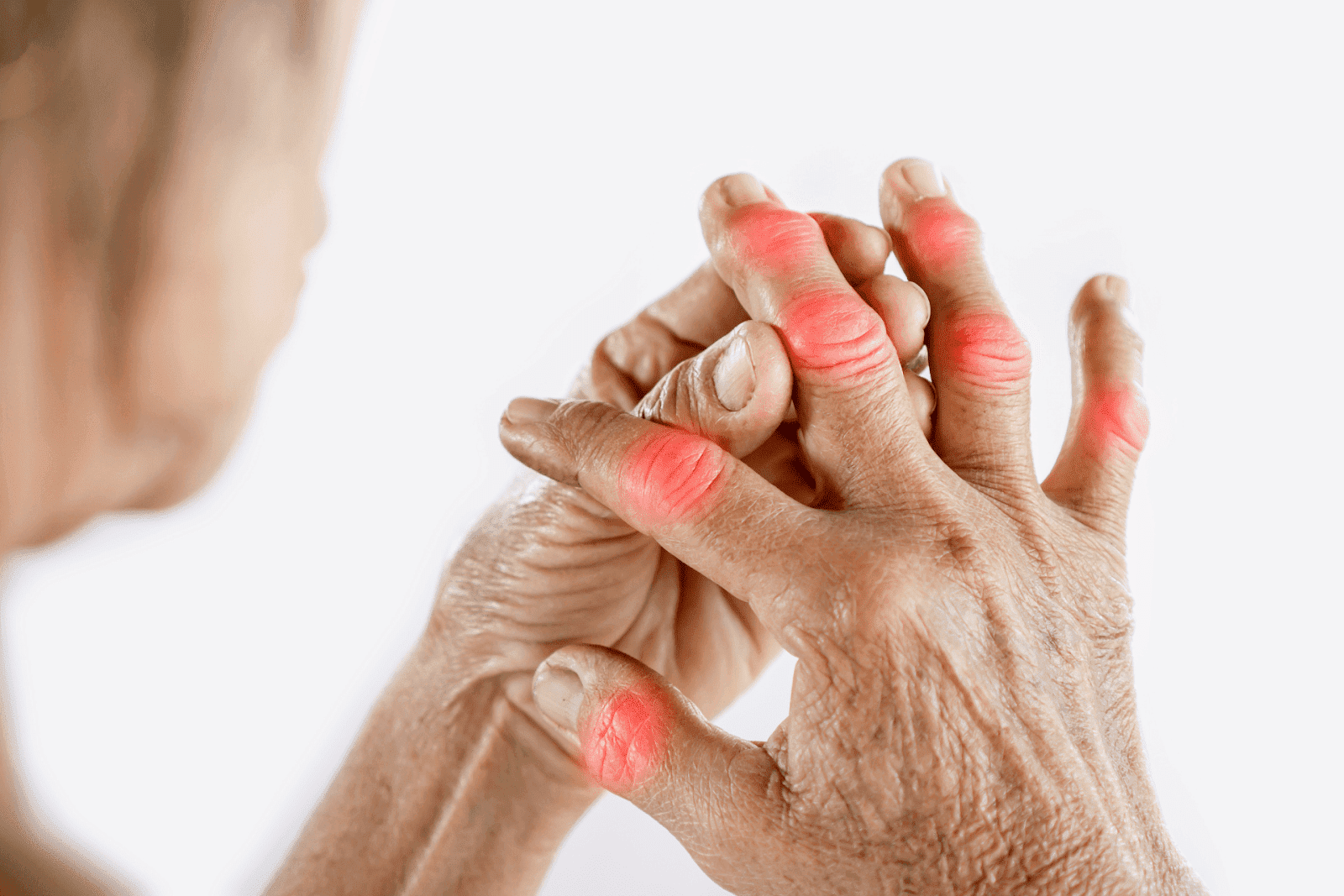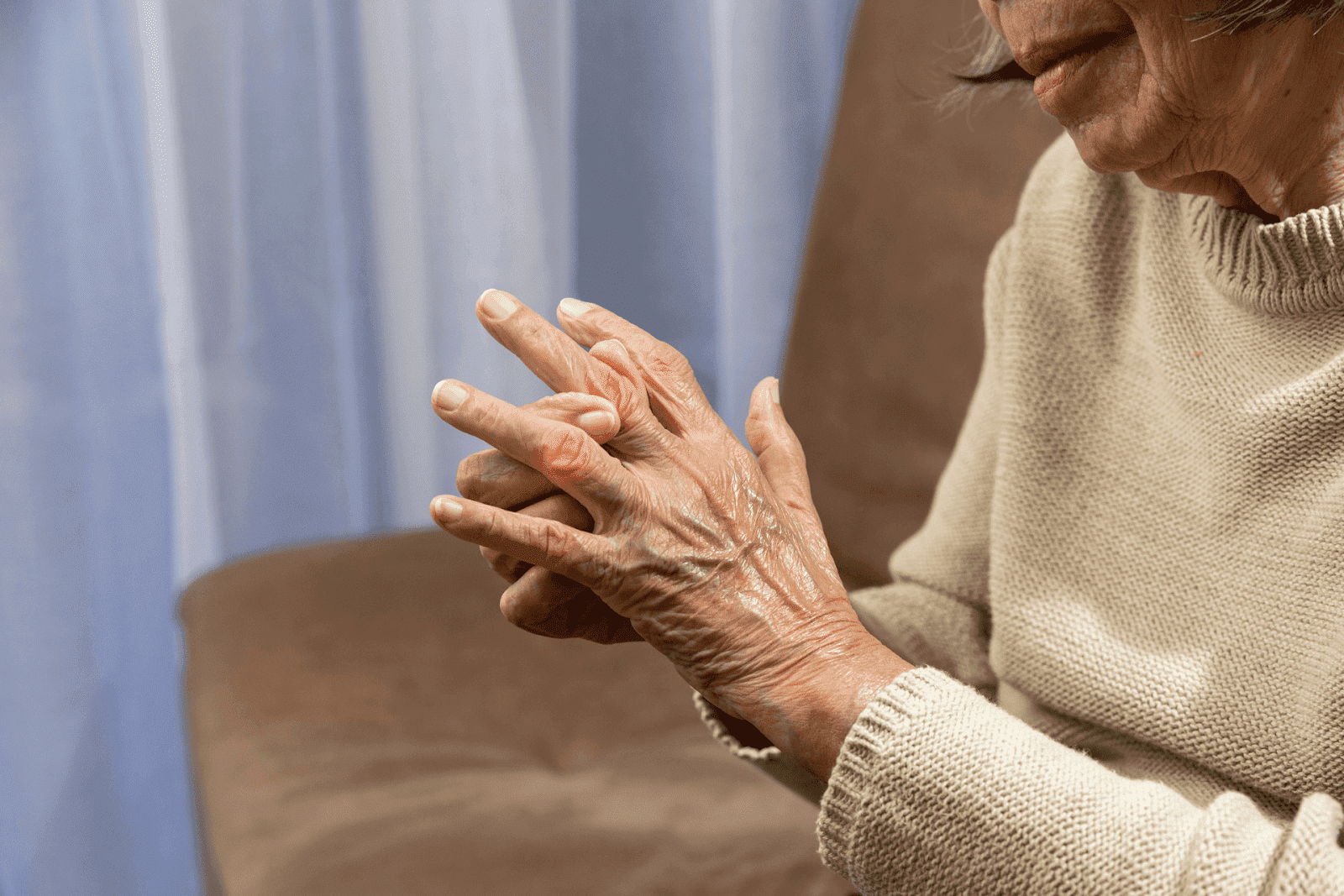How to Stop Gout Pain at Night
Gout is a form of arthritis characterized by sudden, severe attacks of pain, swelling, and redness in the joints. These attacks often strike at night, disrupting sleep and [...]
Read More
Medically reviewed by Alan Lucks | MD, Alan Lucks MDPC Private Practice - New York on October 13th, 2025.
Nighttime attacks occur because body temperature drops 1-2°F and cortisol levels decrease by 50% during sleep, allowing uric acid crystals to precipitate more easily in joints while reducing natural anti-inflammatory defenses.
Elevate the affected joint above heart level and apply ice wrapped in a towel for 15-20 minute intervals—never apply ice directly to skin as it can cause tissue damage during acute inflammation.
NSAIDs like ibuprofen (400-800mg) or naproxen work better than acetaminophen for crystal-induced inflammation, but should be taken with food to prevent stomach irritation.
Consuming 8-12 glasses of water daily helps maintain urine output above 2 liters, diluting uric acid concentration and preventing crystal formation that triggers flares.
Seek immediate medical care if pain persists beyond 72 hours, fever exceeds 101°F, or red streaking appears around the joint—these signs indicate possible infection requiring urgent antibiotic treatment.
Gout is a form of arthritis characterized by sudden, severe attacks of pain, swelling, and redness in the joints. These attacks often strike at night, disrupting sleep and causing intense discomfort. Understanding how to manage and stop gout pain at night is essential for improving quality of life. This article explores practical strategies to alleviate nighttime gout pain, the role of lifestyle changes, and how modern telehealth services like Doctronic.ai can provide timely medical support.
Gout pain tends to intensify during the night due to several physiological and environmental factors. One key reason is that body temperature drops during sleep, which can cause uric acid crystals to form more readily in the joints, triggering inflammation and pain. Additionally, lying down can reduce blood flow, allowing uric acid to accumulate in the affected joints.
Another factor is that the body's natural production of cortisol, an anti-inflammatory hormone, decreases at night. This reduction means the body’s ability to fight inflammation is lower during sleep, making gout attacks feel more severe. Understanding these mechanisms helps in targeting effective interventions to reduce nighttime pain.
Moreover, lifestyle choices can exacerbate nighttime gout symptoms. For instance, consuming a heavy meal or alcohol before bed can lead to increased uric acid levels, further heightening the risk of an attack. Foods rich in purines, such as red meat and certain seafood, can also contribute to elevated uric acid levels, making it crucial for individuals prone to gout to be mindful of their dietary habits, especially in the evening hours.
Additionally, dehydration plays a significant role in the severity of gout pain at night. During sleep, the body can become dehydrated, which may concentrate uric acid in the bloodstream. This is particularly relevant for those who do not drink enough water throughout the day. Staying adequately hydrated can help dilute uric acid levels, potentially reducing the likelihood of painful flare-ups. Therefore, developing a nighttime routine that includes hydration and careful dietary choices can be beneficial for managing gout symptoms effectively.
 Immediate Steps to Relieve Gout Pain at Night
Immediate Steps to Relieve Gout Pain at NightRaising the painful joint above heart level can help reduce swelling and improve circulation. For example, if the big toe or foot is affected, propping it up on pillows while lying down can ease discomfort. Elevation helps prevent blood pooling and reduces pressure on the joint, which can diminish pain intensity. Additionally, consider using a wedge pillow or a specially designed leg elevation pillow to maintain the position comfortably throughout the night. This method not only alleviates pain but can also promote better sleep by allowing you to find a more restful position.
Using an ice pack wrapped in a cloth on the inflamed joint for 15 to 20 minutes can numb the area and reduce swelling. Cold therapy is a simple and effective way to manage acute gout pain. However, avoid applying ice directly to the skin to prevent frostbite. For added relief, some individuals find success with a cold compress infused with essential oils like peppermint or eucalyptus, which can provide a soothing sensation and further reduce inflammation. Remember to take breaks between applications to allow the skin to recover and avoid any adverse reactions.
Nonsteroidal anti-inflammatory drugs (NSAIDs), unless contraindicated, such as ibuprofen or naproxen can help reduce inflammation and pain. It’s important to follow dosing instructions and consult a healthcare provider if you have any underlying health conditions. These medications can be especially helpful for managing nighttime pain and improving sleep quality. In addition to NSAIDs, some people may find relief with topical analgesics, which can be applied directly to the skin over the affected area. This dual approach can enhance pain management and provide more comprehensive relief during those restless nights.
Drinking plenty of water helps flush uric acid from the body, potentially reducing the severity of gout attacks. Avoid alcohol and sugary drinks before bedtime, as they can increase uric acid levels and worsen symptoms. Incorporating herbal teas, such as ginger or chamomile, can also be beneficial, as they not only hydrate but may possess anti-inflammatory properties that can further alleviate discomfort. Staying hydrated throughout the day can set a positive foundation for better health, making it less likely for gout flare-ups to occur during the night.
Uric acid is produced when the body breaks down purines found in certain foods. Reducing intake of high-purine foods such as red meat, organ meats, shellfish, and sugary beverages can lower uric acid levels. Instead, focus on a diet rich in vegetables, whole grains, and low-fat dairy products.
Research shows that dietary modifications can significantly reduce the frequency and severity of gout attacks. Incorporating cherries or cherry juice, known for their anti-inflammatory properties, may also help prevent flares. Additionally, foods rich in omega-3 fatty acids, such as fatty fish like salmon and walnuts, can help reduce inflammation and support overall joint health. It's also beneficial to stay hydrated by drinking plenty of water, as proper hydration can assist in flushing out uric acid from the body.
Obesity is a major risk factor for gout. Losing excess weight through a balanced diet and regular exercise can reduce uric acid levels and improve joint health. Low-impact activities like swimming or walking are ideal for those with joint pain. Incorporating strength training can also be beneficial, as building muscle mass can help improve metabolism and support weight management.
Moreover, establishing a consistent exercise routine not only aids in weight loss but also enhances overall well-being. Activities such as yoga or tai chi can improve flexibility and reduce stress, which may indirectly help in managing gout symptoms. Setting realistic fitness goals and gradually increasing activity levels can lead to sustainable lifestyle changes that support long-term health.
Alcohol, especially beer and spirits, increases uric acid production and decreases its elimination. Sugary beverages containing high fructose corn syrup have a similar effect. Limiting these drinks can help control gout symptoms and reduce nighttime attacks. Opting for water, herbal teas, or infusions made with lemon or mint can be refreshing alternatives that keep hydration levels up without the added sugars or alcohol.
It's also important to be mindful of hidden sugars in many processed foods and drinks. Reading labels and choosing whole, unprocessed foods can help maintain a balanced diet while avoiding unnecessary purines and sugars. Engaging in mindful eating practices can further support healthier choices and foster a better relationship with food.
For individuals with frequent gout attacks, doctors may prescribe medications such as allopurinol or febuxostat to lower uric acid levels. Adherence to these medications is crucial for long-term management and preventing painful nighttime episodes. Regular check-ups with healthcare providers can ensure that the treatment plan remains effective and is adjusted as necessary based on individual health changes.
In addition to prescribed medications, some individuals may benefit from complementary therapies, such as acupuncture or physical therapy, which can provide relief and improve joint function. Keeping a symptom diary can also help track triggers and responses to medications, enabling better communication with healthcare professionals and more personalized treatment strategies.
While self-care measures can be effective, it’s important to consult a healthcare professional if gout pain is severe, persistent, or accompanied by fever and chills, which could indicate infection. Early intervention can prevent complications and improve outcomes.
Modern telehealth services like Doctronic.ai offer a convenient and affordable way to access medical care 24/7 from the comfort of home. Doctronic combines AI-driven diagnostics with real doctors available for video visits across all 50 states, making it an excellent resource for managing gout and other health concerns.
Doctronic’s AI doctor can provide immediate answers to your questions about gout symptoms and recommend appropriate next steps. If needed, you can schedule a telehealth video visit with a licensed physician for personalized treatment, all for less than $40. This approach is especially valuable for nighttime gout pain when traditional clinics may be closed.
Keeping the bedroom cool and dark can promote better sleep. Using supportive pillows to cushion and elevate the affected joint can also reduce discomfort. Avoid tight bedding that might put pressure on inflamed joints.
Stress can exacerbate pain perception. Techniques such as deep breathing, meditation, or gentle stretching before bed may help relax the body and ease pain.
Going to bed and waking up at the same time daily supports overall health and can improve pain tolerance. Good sleep hygiene is an important part of managing chronic conditions like gout.
 Managing Gout for Better Sleep
Managing Gout for Better SleepNighttime gout pain can be debilitating, but with the right strategies, it is possible to reduce discomfort and improve sleep quality. Immediate measures like elevation, cold therapy, and pain relievers provide quick relief, while long-term lifestyle changes help prevent future attacks. For personalized guidance and convenient access to medical care, telehealth services such as Doctronic.ai offer an innovative solution that combines AI expertise with real doctors available anytime.
Taking control of gout pain at night empowers individuals to live more comfortably and maintain better overall health. With the right tools and support, restful nights are within reach.
Don't let gout pain keep you awake at night. Embrace the innovation of Doctronic, the #1 AI Doctor, and get instant, personalized care at your fingertips. Our AI-powered platform provides free, immediate medical insights. For less than $40, you can schedule a telehealth video visit with one of our doctors anytime, anywhere in all 50 states. With over 10 million satisfied users, Doctronic is transforming the way we approach healthcare, making it faster, smarter, and more personal than ever before. Skip the line. Talk to an AI Doctor Now, for free.
Immediate relief comes from elevation, ice therapy, and anti-inflammatory medication, while proper hydration throughout the day prevents crystal formation that causes nighttime attacks. Long-term success requires maintaining uric acid levels below 6 mg/dL through dietary changes and possible medication. If you're struggling with recurring nighttime episodes, Doctronic can help you develop an effective prevention strategy.
Gout is a form of arthritis characterized by sudden, severe attacks of pain, swelling, and redness in the joints. These attacks often strike at night, disrupting sleep and [...]
Read More